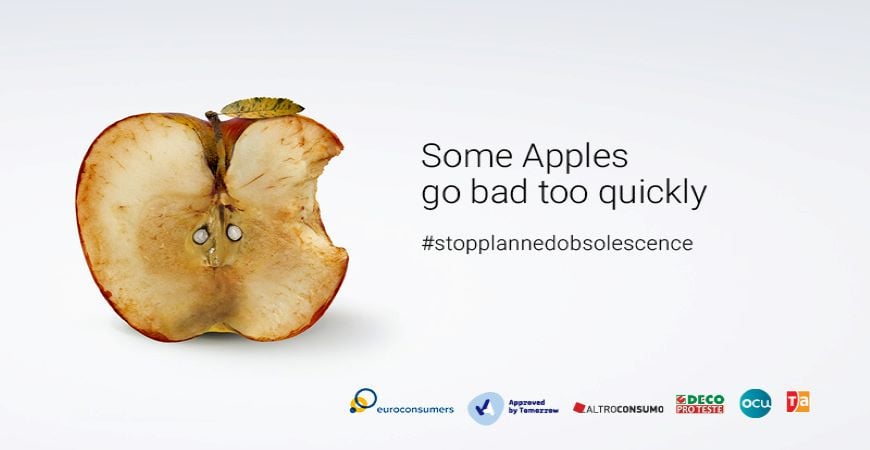This website uses cookies so that we can provide you with the best user experience possible. Cookie information is stored in your browser and performs functions such as recognising you when you return to our website and helping our team to understand which sections of the website you find most interesting and useful.
Batterygate: pressure on Apple mounts as more consumer groups join fight against failing iPhones

OCU claims that the phone’s batteries were affected by a software update, which pushed users towards upgrading to a new phone as they believed the old one was past its best. Under Spanish law, the way this ‘planned obsolescence’ happened amounted to unfair, deceptive and aggressive commercial practice in direct violation of the country’s Unfair Competition Law and General Law for the Defense of Consumers and Users.
Apple profits from planned obsolescence
What is more, Apple has profited from deliberately encouraging people to renew their iPhones earlier than they needed to – leaving Spanish consumers with an economic loss of between 40 and 80 million euros.
Bringing this as a collective action means that OCU bears the costs of the process and individuals affected will not incur any expenses. If the case is successful, individual consumers stand to be compensated between 99 euros and 189 euros. This figure is based on material damages to compensate for purchase of a new battery or new phone, and on moral damages to users such as frustration and loss of trust.
E-waste damages the environment
This compensation doesn’t even capture the environmental damage that planned obsolescence creates, as perfectly good devices are replaced and go to waste. This also drives overconsumption and the depletion of resources and use of energy in creating new products. After years of regularly updating to the latest tablet or phone, consumers are now much more aware of the environmental damage this can do. Shortening the useful life of devices is not just unfair and financially costly to consumers now, but will contribute to longer term harm in the future.
UK class action launched
OCU and Euroconsumes are not the only ones to take upon the fight against Apple’s planned obsolescence. Meanwhile, in the UK, consumer champions are making the most of its relatively new opt-out class action mechanism by launching a similar planned obsolescence case against Apple on behalf of 25 million UK iphone users.
The larger figure reflects the fact that the claim is for additional models of phone outside of the iPhone 6 range including some in the 7, 8 and X ranges. The claim is seeking damages of up to £768million / €906million.
Co-ordinating batterygate class actions
The case of Apple’s planned obsolescence is a great example of why cross-border co-ordination of class actions is so important. Euroconsumers is using its unique position to join up responses across borders. So far, its four European members in Italy, Spain, Belgium and Portugal have all filed class actions in their respective national courts, after attempts by Euroconsumers to resolve the issue without resorting to legal action failed.
Global firms can create global problems for consumers everywhere. Euroconsumers and its members want consumers who experience the same loss to be treated equally, no matter where they happen to live. In the US, Apple agreed to settle the same allegations and pay out $113million / €100million to consumers two years ago. As Spain now officially files its case, and 25 million UK consumers seek redress, it’s time for Apple to stop delaying and compensate consumers not just in the US but wherever they are in the world.


